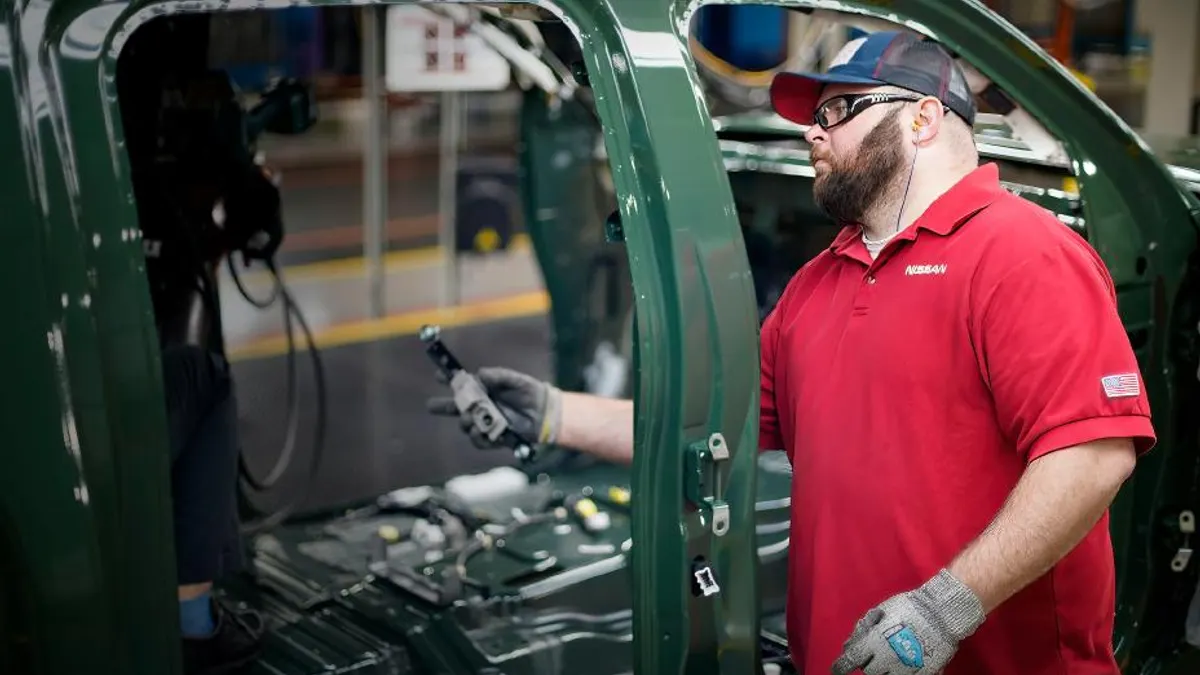Rita, one of my supply chain mentors, would often encourage me to get on the road and visit with my performance-challenged suppliers. With a pat on the back she’d tell me, “Great suppliers are not born. They are built from the ground up.” It was her way of reinforcing the importance of our supplier development activities and how those efforts contributed to improving performance of the supply base.
Buyers offer supplier development activities, as part of a philosophy of relationship management, to help the supplier perform to the best of their ability. Supplier development efforts may include manufacturing support, help with a downstream supplier issue, quality assurance training, value analysis or other areas that may help a supplier improve cost, quality and delivery performance.
Yet many efforts fall short by using a one-size-fits-all solution, sometimes minimized or rejected by the supplier.
This is where coaching comes in — the next stage in increasing supplier performance. Rita would jokingly call me ‘Coach,’ a term of endearment then but an increasingly accurate one today.
Coaching is not a replacement for standard supplier development initiatives, but one reserved for critical suppliers who need a more comprehensive and in-depth methodology to meet their business objectives, and yours. Coaching candidates are most often single-source or sole-source suppliers. It is in the buyer’s best interest to help these suppliers to improve their performance. Coaching should not be considered a long-term project, but one to help a good supplier, perhaps going through a rough patch, to get better.
Coaching should not be considered a long-term project, but one to help a good supplier, perhaps going through a rough patch, to get better.

Coaching is the process of equipping people with the tools and knowledge they need to fully develop themselves and their organizations to be effective. It takes a more holistic approach and utilizes a systems-thinking methodology — one that looks at the big picture.
Let’s look at the fundamental difference between supplier development and supplier coaching. My company may be a strong supporter of lean manufacturing, and as a supplier development activity, major Tier 1 suppliers would be invited to attend a full-day workshop at our factory to learn the fundamentals of lean. This would include seeing actual examples of lean manufacturing on the shop floor. In supplier coaching, our lean experts would visit the supplier to assist in the layout of a lean-based production line used for supplying our parts.
Supplier coaching offers a closer relationship with the supplier, allowing for opportunities to address qualitative issues such as management and employee development, organizational dynamics, communications breakdowns and other barriers that prevent the supplier from meeting their quantitative or metric-driven performance requirements.
While there is quite a bit of informal supplier coaching happening, some companies are trying to formalize the process. These next steps may help.
Be transparent
Coaching has term limits. As the buyer, I am offering coaching to a supplier to overcome an obstacle in their performance that I don’t think they can handle on their own.
However, coaching can be expensive. Companies need to make decisions as to the cost/benefit of engaging in the supplier coaching process. Suppliers need to be aware of why the coaching is offered, their role in the process and have a commitment to improvement.
Choose coaching candidates wisely
Some suppliers are resistant to any outside interference in their business and will decline most supplier development activities including opportunities to be coached. Of course, this doesn’t automatically make them an unsuitable supplier, but if they have performance issues and are resistant to any type of help, it may be time to look in another direction. A supplier who is not even willing to entertain the idea of coaching may not be a long-term fit.
Smaller and less sophisticated suppliers reach out to larger companies for help in meeting performance criteria. Suppliers who are good candidates for coaching may have already sought outside help through private coaches or local or national business improvement organizations. Getting coaching from a customer, who is very familiar with the supplier’s business and has a financial interest in their success, may be quite welcomed. Coaching efforts can start small and expand over time.
Coaching can also be proactive. A technology-dependent sole-source supplier — one that is critical to my business — may welcome coaching. And because this supplier may sit squarely on my supply chain risk profile chart, it is important they get the coaching they need, be it in staff development, supply chain management, financial operations or manufacturing support.
Brace for impact
Understand supplier resistance. I once worked for a manufacturing company that fully embraced lean manufacturing and statistical process control. Members of the procurement department, many of us on the younger side at the time, were sent out as manufacturing evangelists, delivering a book on demand flow technology as part of our supplier relationship process.
Most suppliers accepted the book with a smile but had no intention to change any of their plant layouts and processes to meet our latest initiative. When we said we are required to coach them through the process, several escorted us to the door. The moral of the story? Don’t force coaching on a supplier.
Identify the coaches
Identify excellent candidates to be coaches and train them thoroughly in coaching concepts. Not everyone in your procurement organization has the capabilities or experience to coach suppliers.
Coaches like to teach. They have a thorough understanding of what they are coaching, are empathetic to the struggles the supplier is having, and are interested in working towards a positive result for all concerned. They are problem-solvers and enjoy working with people.
Jim was a supplier coach on my commodity team, and we traveled to a major supplier near Niagara Falls to work through some thorny manufacturing issues. Jim would sit with the product assemblers and show them how to build the intricate parts we needed. Jim was a people person and the workers loved working with him, often bringing him homemade treats when he was scheduled to visit. After a few ‘workshops’, the manufacturing issues were resolved. Jim would often accompany me on my annual contract review visit just to be sure things were running smoothly. The employees were always happy to see him.
Be aware that coaches can come from other functions as well. Suppliers with financial challenges may welcome a coach from your finance department to help them better understand collections or cash flow. Coaches from manufacturing operations may help them in their latest lean challenge. Being a supplier coach comes with an opportunity to improve supplier performance and have a lasting impact on the supplier that will transcend any supplier fitness report.
This story was first published in our weekly newsletter, Supply Chain Dive: Procurement. Sign up here.





















